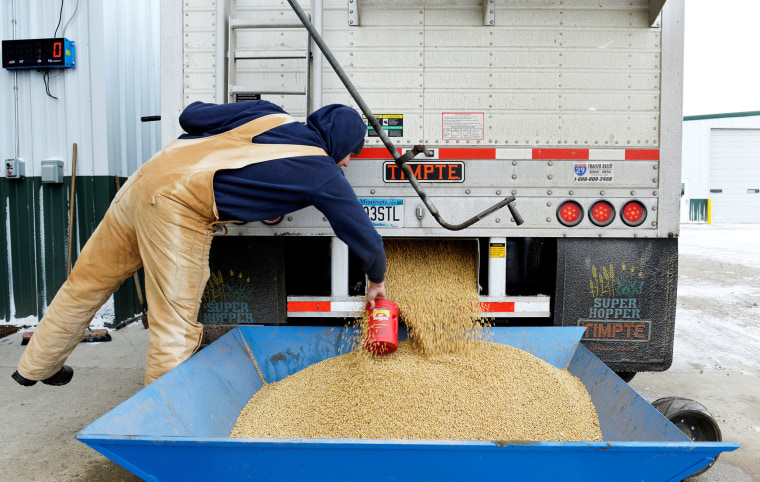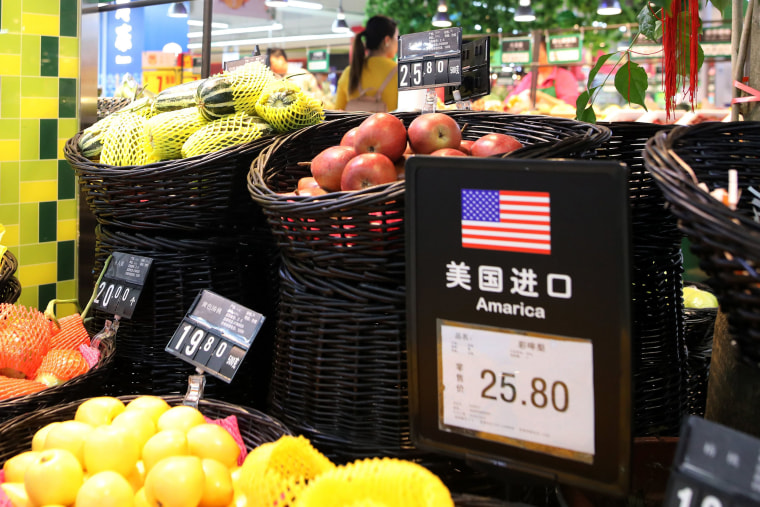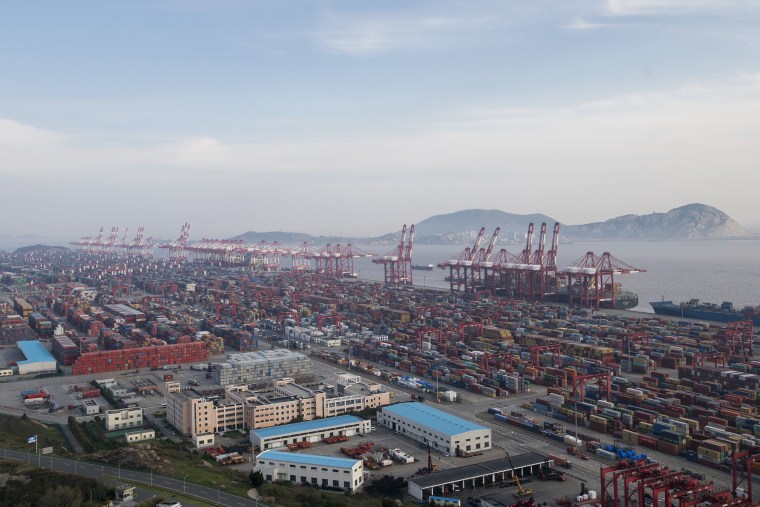China quickly hit back on Wednesday at Trump administration plans to slap tariffs on $50 billion in Chinese goods, retaliating with a list of similar duties on key U.S. imports including soybeans, planes, cars, whiskey and chemicals.
The move shook markets worldwide and sent Dow Jones futures plummeting by almost 600 points on Wednesday morning.
The White House was quick to downplay the reaction, however, with Commerce Secretary Wilbur Ross saying the retaliatory tariffs were "hardly a life-threatening activity," in an interview with CNBC. China's punitive measures "amount to about three-tenths of a percent of our GDP," Ross said.
President Donald Trump further weighed in, tweeting that "We are not in a trade war with China, that war was lost many years ago."
"I'm frankly a little surprised that Wall Street was so surprised by it," said Ross. "This has been telegraphed for days and weeks."
Investors are wondering whether one of the worst trade disputes in many years could now turn into a full-scale trade war between the world’s two economic superpowers.
"The assumption was China would not respond too aggressively and avoid escalating tensions. China's response is a surprise for some people," said Julian Evans-Pritchard, senior China economist at Capital Economics, noting that neither said had yet called for enforcement of the tariffs.
"It's more of a game of brinkmanship, making it clear what the cost would be, in the hopes that both sides can come to agreement and none of these tariffs will come into force," he said.
Beijing's list of 25 percent additional tariffs on U.S. goods covers 106 items with a trade value matching the $50 billion targeted on Washington's list, China's commerce and finance ministries said. The effective date depends on when the U.S. action takes effect.

Unlike Washington's list, which was filled with many obscure industrial items, China's list strikes at signature U.S. exports, including soybeans, frozen beef, cotton and other key agricultural commodities produced in states from Iowa to Texas that voted for Donald Trump in the 2016 presidential election.
"This is a real game changer and moves the trade dispute away from symbolism to measures which would really hurt U.S agricultural exports," said Commerzbank commodities analyst Carsten Fritsch.
China's tariff list covers aircraft that would likely include older models like Boeing Co's workhorse 737 narrowbody jet, but not newer models like the 737 MAX or its larger planes. A Beijing-based spokesman for Boeing declined to comment.
"The best opportunities for resolving the issues through dialogue and negotiations have been repeatedly missed by the U.S. side."
Beijing's announcement triggered heavy selling in global financial markets, with U.S. stock futures sliding 1.5 percent and U.S. soybean futures plunging nearly 5 percent and on track for their biggest fall since July 2016. The dollar briefly extended early losses, while China's yuan skidded in offshore trade.
Hours earlier, the U.S. government had unveiled a detailed breakdown of some 1,300 Chinese industrial, transport and medical goods that could be subject to 25 percent duties, ranging from light-emitting diodes to machine parts.
The U.S. move is aimed at forcing Beijing to address what Washington says is deeply entrenched theft of U.S. intellectual property and forced technology transfer from U.S. companies to Chinese competitors, charges Chinese officials deny.
Foreign ministry spokesman Geng Shuang said China had shown sincerity in wanting to resolve the dispute through negotiations.
"But the best opportunities for resolving the issues through dialogue and negotiations have been repeatedly missed by the U.S. side," he told a regular briefing on Wednesday.

The tariff list from the office of U.S. Trade Representative Robert Lighthizer followed China's imposition of tariffs Monday on a $3 billion list of U.S. goods including pork, apples and steel pipe in response a higher American import duties on steel and aluminum.
China ran a $375 billion goods trade surplus with the United States in 2017, a figure that Trump has demanded be cut by $100 billion.
